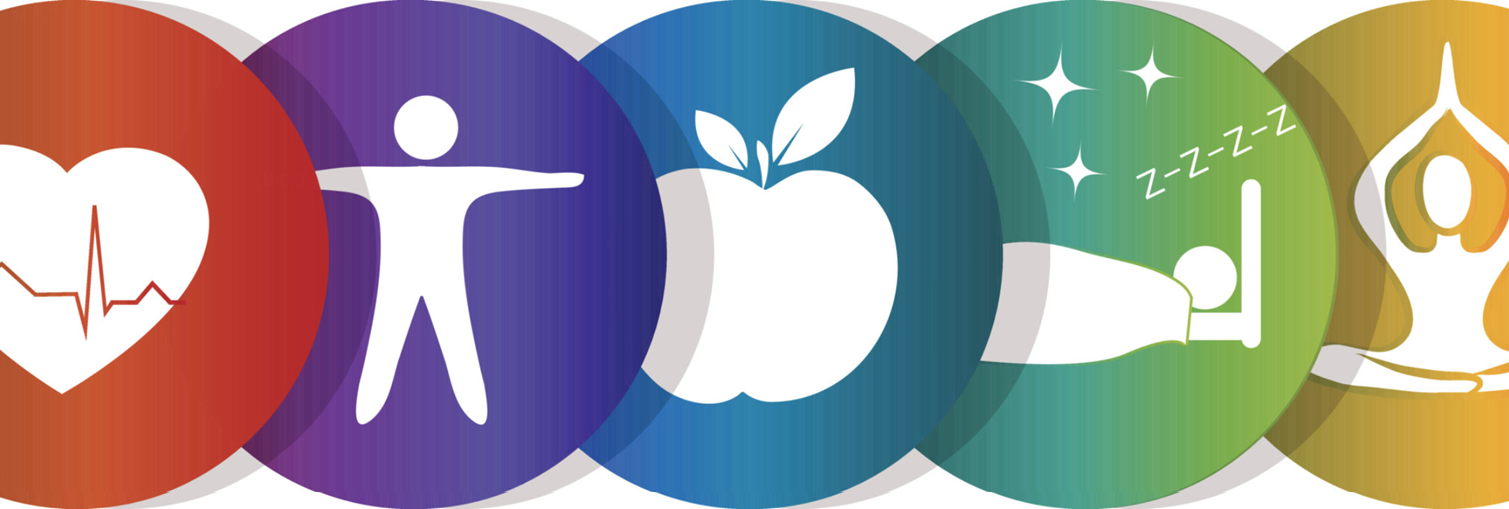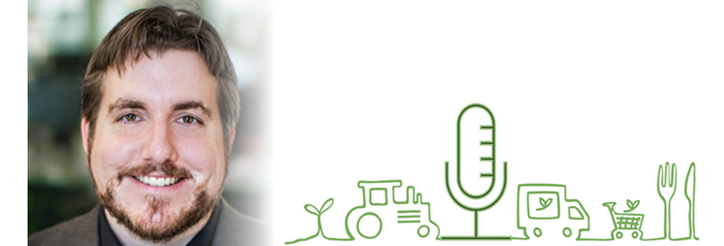Our Agricultural Extension Service: From Gardening to Food Safety
The Dirt
Did you know that we all have a tremendous service available in our local vicinity? In 1914, the federal government created the modern agricultural extension services program designed to teach people not just how to farm productively, but how we all can benefit from that agricultural system for a better life. And it still thrives today.
Inspiring Stories
Sustainable Agriculture
Our Agricultural Extension Service: From Gardening to Food Safety
The Dirt
Did you know that we all have a tremendous service available in our local vicinity? In 1914, the federal government created the modern agricultural extension services program designed to teach people not just how to farm productively, but how we all can benefit from that agricultural system for a better life. And it still thrives today.
Have you ever visited, or even heard of your local agriculture extension program? Extension services provide an amazing array of resources, instruction, and assistance to people everywhere – from those living in the inner city to the most rural locale –to educate about food and farming and to help bridge the distance between dirt and dinner.
The United States’ Cooperative Extension system is a vast network of offices and resources specializing in all things ag, from helping you plan your seasonal veggie garden to providing assistance to large farm producers. These services are available nationwide at the county level and you can find your local office here. What’s remarkable about the system is that it’s backed by local colleges and universities to provide current information and in-depth research for the county’s specific location.
In this post, we take a look at how one state’s extension service works to fulfill the ambitions laid out in legislation dating back more than a full century. We spoke with Dr. Gary Bates, director of the The University of Tennessee’s Beef and Forage Center and professor of plant sciences at the UT Institute of Agriculture in Knoxville.
The program is a huge undertaking
Over 400 agents, working in offices, fields, and homes across Tennessee’s 95 counties, backed by university researchers, scientists and scholars. Education and support to 71,000 families, over 200,000 children and nearly a quarter-million people engaged in farming and food production. Practical help and instruction for more than a half-million state citizens, to the benefit of all 4.3 million Tennesseans.
In this case, the “undertaking” is the University of Tennessee’s Extension Services program – the outreach program of the school’s Institute of Agriculture. Its mission: to improve people’s quality of life and solve problems through the application of research and evidence-based knowledge about agriculture and natural resources, family and consumer sciences, 4-H youth development, and community development.
Behind the somewhat cool institutional language, the real message is far more compelling.
 “Our extension services seek to answer real-life questions,” according to Dr. Gary Bates, director of the University’s Beef and Forage Center and associate professor of plant and soil science. It’s learning for the real world, not just a classroom or a course exam or even a dinner-table discussion.
“Our extension services seek to answer real-life questions,” according to Dr. Gary Bates, director of the University’s Beef and Forage Center and associate professor of plant and soil science. It’s learning for the real world, not just a classroom or a course exam or even a dinner-table discussion.
“Our approach is to look at three sectors in what we do,” Dr. Bates explains. “There’s the ag side – the producers. Then there is the average person, the homeowner, and consumer — urban, suburban and rural. Then there is the 4-H.”
Why does the 4-H get such special attention? “Here in Tennessee, we have one of the larger 4-H groups in the country, roughly 180,000 kids. Sustainability is all about the future, and those kids are our future.”
Through the extension program, young people learn not just basic agronomics or animal husbandry or sustainable farming practices but also a host of other demanding subjects. “A lot of science goes into feeding the world,” Dr. Bates says.
“Just look at what science has done in our lifetime to boost corn yields. We’re feeding a bigger, hungrier world thanks to science. Think about the importance of plant breeding, how we can use drones to be more productive, how to turn precision agriculture and big data into practical improvements in how we farm. We help kids understand all that, and how important and exciting career in agriculture and food can be for them.”
“Farming isn’t Jim-Bob in a pair of overalls today, if it ever really was,” Dr. Bates notes. “If you are interested in science, agriculture is one of the best fields you can go into. What we do helps kids see that.”
Teaching Life Skills
But that is far from the sole focus of the extension service, he adds quickly.
“Our programs help develop those young people, and not just to farm. We want people to know that their food didn’t just spring up magically from the ground, or just appear on a grocery shelf or a restaurant plate from thin air,” Bates says. “But we use agriculture to teach life skills. How to care for animals and plants and other living things. How to be responsible. How to work with others, and to listen and communicate with people, including public speaking. And a whole lot more.”
That philosophy is nothing new. It’s been part of the extension service program since the passage of the Smith-Lever Act of 1914. Even then, the Act’s objectives went beyond education for rural Americans in agricultural production to home economics, leadership and other skills contributing to an improved quality of life.
Dr. Bates notes that commercial producers represent only about 2 percent of the state population.

“You would be surprised at how many other kinds of agriculture are out there – home gardens and small part-time operations, local food businesses like restaurants and sidewalk markets, and that kind of thing,” he says. “And beyond that, there’s one really important thing to keep in mind: everybody eats.”
Dr. Bates also emphasizes the importance of extension services to people in making the best use of food, not just producing it.
“We help people learn how to set up and manage a home budget, how to prepare food safely, how to plan out a wholesome, nutritious meals for the whole family, how to manage your time wisely… pretty much anything we can think of that will help people and families live better lives.”
Through the extension services, local operations offer instruction in small-acreage agricultural production for home gardeners and part-time producers. They sponsor farmers’ markets and local community gardens. They provide courses in food preparation and nutrition, and even advice on budgeting and managing small business operations.
“It’s a continuous education process,” Dr. Bates explains. “It can’t stand still, or stop thinking about new ways to help people. We’re constantly evaluating what we do and how effective it is, and how we can do it better. Above all, what we are doing is helping the entire local community to have locally produced food and to use it safely and wisely.”
What Lies Ahead
What are the biggest challenges? What issues are you wrestling with today?
As with every industry, keeping pace with technology presents its issues. “There are new systems, new equipment, new management programs, new everything, it seems some days. We have to stay on top of all that, and be prepared to help people understand it and what it can do for them as producers –and consumers.”
The fast pace can create a new sense of urgency, too, Dr. Bates notes. “People want answers faster. They want help faster. They want results faster. That keeps us on our toes, to say the least. We have to be responsive, and we work really hard to do that.”
He also points to complications arising from the cyber age. “There’s tons of data out there. We want to use the science and research generated by the University to accomplish something in the real world, to make things actually work better or deliver more.”
Then there is social media, he adds. “How do we use it to help consumers learn about food and where to find it and how to prepare it and so on. Our extension agents are clamoring for help in understanding how to make the best use of social media.”
Healthy Ag, Healthy Economy
Why is that ambitious goal of promoting the general welfare of the state population the role of the extension services?
Dr. Bates has a quick answer to the question: “Why shouldn’t it be?”
 “We’ve built our programs around the simple idea that if our state economy is going to be healthy, we have to have a healthy agricultural sector…we want everybody in the state to be able to benefit from that. Not just the men and women who produce agricultural products…we teach people how to get the most from that system, in how they choose the right foods, how they preserve food and avoid waste, how they prepare safe meals for their families, and on and on and on. We teach everyone how important it is to make the system truly sustainable.”
“We’ve built our programs around the simple idea that if our state economy is going to be healthy, we have to have a healthy agricultural sector…we want everybody in the state to be able to benefit from that. Not just the men and women who produce agricultural products…we teach people how to get the most from that system, in how they choose the right foods, how they preserve food and avoid waste, how they prepare safe meals for their families, and on and on and on. We teach everyone how important it is to make the system truly sustainable.”
So extension services are about far more than helping farmers make more money?
‘We’re working to make sure our ag sector thrives, and that it is profitable, sure, but also that it is sustainable,” he adds. “When we do that, we give our agricultural system real stability – and make sure it stays a cornerstone of a healthy state economy. Those aren’t just words we say, either. We’ve got people in 95 counties working to make sure it’s a lot more than just talk.”
Thoughts from a Bystander
Whether we’re a farmer, manufacturer, or consumer, extension programs, like the University of Tennessee’s, help us produce more of the food people need and want, profitably and sustainably. They help us develop new and better crops and more alternatives for meeting our food needs. They help us feed our families with better, safer, more nutritious foods. And they help us waste less. They help us make the best use of our natural resources, and preserves and protect them for future generations.
Like they say again and again across the extension service network, we’re all in this together.
The Bottom Line
What emerges from the discussion with Dr. Bates is a simple yet important idea: we’re all part of this long chain of agriculture, from dirt to dinner. And we all have a stake in a healthy, sustainable food system. Understanding how all the parts fit together is a giant step toward making it work better for all of us.

Digging In: Regenerative Ranching
In this podcast, we talk with Greg Putnam, the co-founder, operator, and rancher of Little Belt Cattle Company. This beautiful ranch is a veteran-owned and operated first-generation business dedicated to raising high-quality cattle. Greg's company uses regenerative ranching practices to protect our natural resources and reduce any environmental impact.
Latest in other news...

Navigating Nutrition, Health & Wellness Trends
Health consciousness is not just a trend, but a lifestyle. Mintel's latest report sheds light on the pivotal trends shaping the future of nutrition, health and wellness. Here, we delve into the report with the intention to make lasting changes for our long-term health.





